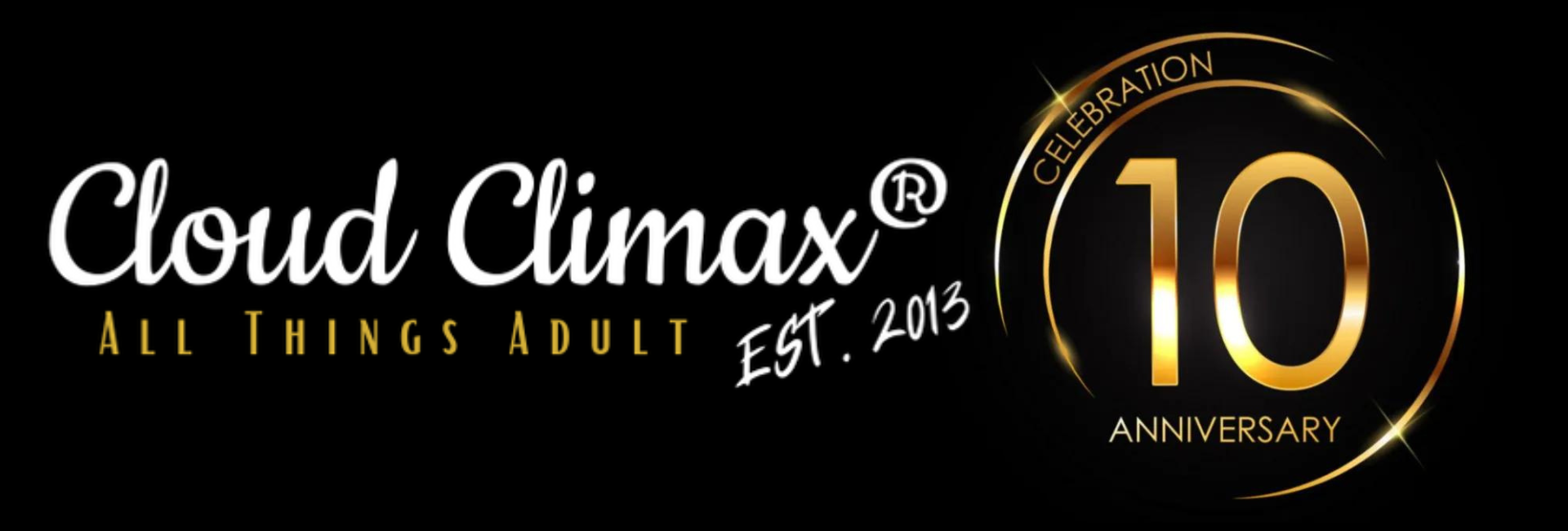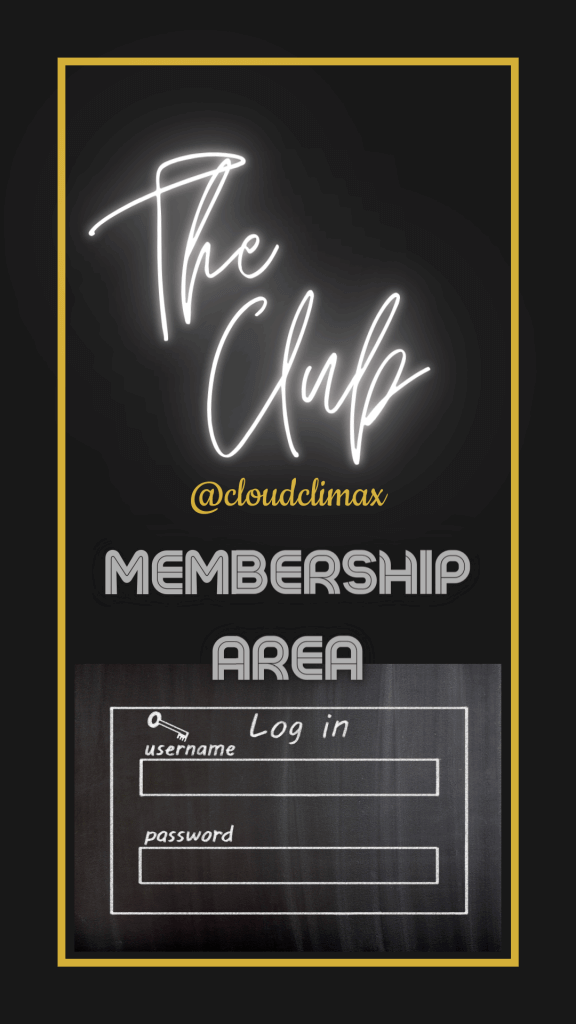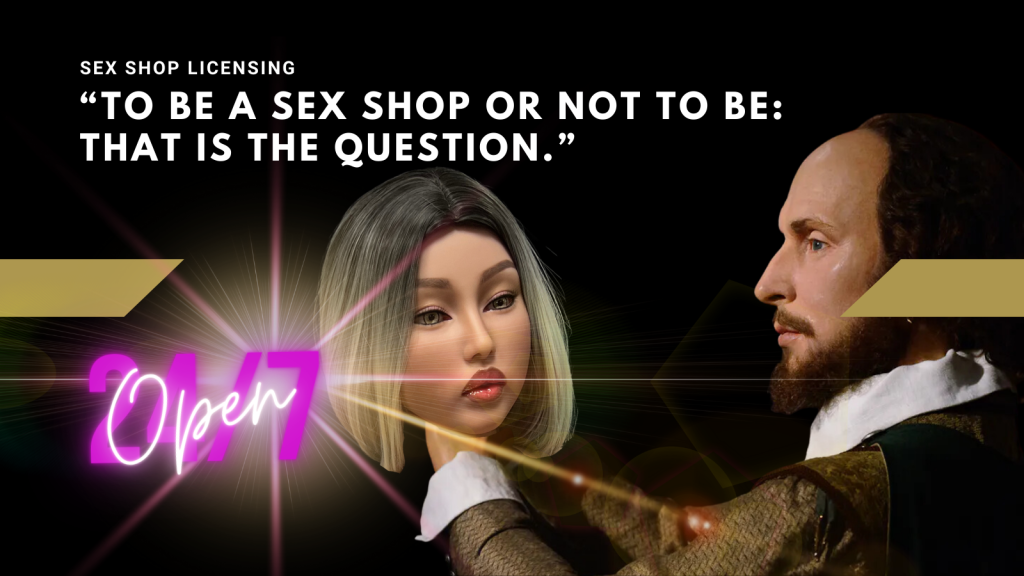Understanding Sex Shop Licensing in the UK’s Digital Age
In the age of digital dominance, few sectors remain untouched by the transformative wave of technological advancement—and the adult entertainment industry is no exception. Where once brick-and-mortar stores served as the primary touchpoints for consumers seeking adult products, the rise of e-commerce has catalysed a paradigm shift, redefining how products from adult dolls to diverse sex toys are accessed, marketed, and purchased.
However, this shift isn’t merely transactional. With the digital revolution comes a renewed spotlight on the ethical and legal frameworks that govern this industry. While digital platforms offer the promise of broader reach and enhanced discretion, they also invite questions about regulation, safety, and consumer protection.
The UK, with its rich tapestry of legal precedents, has been proactive in shaping regulatory standards for the adult entertainment industry. However, many of these regulations trace their origins to an era before the digital boom, making their interpretation and application in today’s e-commerce driven landscape a subject of both interest and contention.
For entrepreneurs eager to tap into the burgeoning online market, understanding these licensing nuances isn’t just a matter of legal compliance—it’s about building trust, ensuring customer safety, and ultimately, laying the foundation for a sustainable and responsible business in the digital age. With the stakes higher than ever, a deep dive into the intricacies of sex shop licensing in the UK is both timely and essential.
Redefining the ‘Sex Shop’ in a Digital World
Historically, the term ‘sex shop’ might have conjured images of dimly lit street corners and discreet storefronts. But the UK’s legislative landscape has long since expanded its scope, moving beyond mere physical storefronts. Acts like the Licensing Act 2003 and the Local Government (Miscellaneous Provisions) Act 1982 encompass a broader perspective. Under these legislations, the definition of a ‘sex shop’ extends to:
- -Any venue or platform facilitating the sale of sex articles or items, including adult dolls and sex toys.
- -Warehouses storing these products.
- -Dropshipping operations and home offices that manage these ventures.
- -Predominantly online ventures involved in the sale of such items.
This extensive definition indicates that almost any premises associated with the business of selling sex articles, whether physically or online, might need to procure a license. This is pivotal for online stores based in the UK. Given that the crux of the legislation revolves around the concept of ‘facilitating a sale’, even digital businesses with a physical presence, such as storage or an administrative facility within the UK, could be considered licensable.
The Importance of Licensing and Compliance
In the rapidly evolving landscape of the adult entertainment industry, businesses that wish to thrive need more than just a keen understanding of market dynamics and consumer preferences; they must also rigorously adhere to the legal frameworks that govern their operations. The significance of licensing and compliance transcends mere bureaucratic procedures; it forms the bedrock of a business’s credibility, legitimacy, and sustainability.
At the heart of this drive for compliance is the intent to foster trust. Modern consumers are more informed than ever and place a premium on transparency and ethical operations. As such, a business that actively pursues and maintains the necessary licenses not only adheres to the letter of the law but also sends a strong message of commitment to its clientele—highlighting its dedication to consumer safety, product quality, and overall business integrity.
However, the repercussions of neglecting licensing can be severe and multifaceted. Financial penalties are often the immediate consequence, with many councils quoting fines of up to £20,000 for non-compliance. Such hefty fines can strain resources and potentially cripple smaller businesses. Beyond the immediate fiscal implications, operating without a license can put a business in murky legal waters, with the spectre of criminal proceedings looming large. There’s a very real concern that if a business is found operating outside the bounds of the law, its income could be deemed as proceeds of crime, introducing a slew of legal complications and potential asset seizures.
The damage isn’t just limited to tangible assets and finances. A business’s most valuable asset—its reputation—stands at grave risk when licensing oversights come to light. In the age of digital communication and social media, news travels fast. Revelations of non-compliance can quickly erode customer trust, leading to a decline in patronage, negative reviews, and a tarnished brand image that can take years to rebuild.
In essence, the stakes are high. For businesses operating in the UK’s adult entertainment sector, understanding and adhering to licensing and compliance requirements is not just a regulatory obligation—it’s a strategic imperative that can shape their trajectory in the market, influence consumer perceptions, and ultimately, determine their success or failure in a competitive landscape.
Consumer Benefits from Licensing and Regulatory Compliance Awareness
For consumers navigating the digital marketplace, especially in sensitive sectors like the adult entertainment industry, having knowledge about a business’s licensing and regulatory compliance becomes a powerful tool. This awareness is not just a passive piece of information, but a dynamic asset that shapes purchasing decisions and interactions with businesses. Here’s a deeper dive into the benefits this awareness offers:
-
Trustworthiness & Authenticity: At the heart of any transaction is trust. When consumers know a business adheres to the required regulatory standards, it signals that the business is genuine and authentic. It eliminates fears of potential scams or fraudulent activities, leading to greater confidence in transactions and interactions.
-
Consumer Protection: Licensed businesses are generally held to higher standards of operation. For consumers, this means a higher likelihood of receiving quality products, assurance on the privacy of their personal data, and more reliable customer service. If issues arise, there’s a structured pathway for complaints and resolutions, ensuring that their rights as consumers are safeguarded.
-
Ethical Considerations: Modern consumers are increasingly conscious of the ethical implications of their purchases. By being aware of a business’s licensing, consumers can ensure they support businesses that adhere to ethical standards. This knowledge allows them to align their purchases with their personal values and principles.
-
Avoidance of Legal Repercussions: Especially in industries dealing with sensitive products or services, consumers need assurance that they’re not inadvertently violating any rules. By choosing to engage with licensed businesses, they shield themselves from potential legal pitfalls.
-
Empowered Decision Making: Knowledge invariably leads to power. When consumers are aware of the regulatory landscape, it empowers them to make well-informed decisions. This knowledge acts as a filter, helping them avoid dubious or counterfeit sellers, ensuring they receive genuine, high-quality products.
-
Supporting Ethical Business Practices: When consumers choose to patronize compliant businesses, they’re indirectly promoting a culture of responsibility within the industry. By prioritizing licensed businesses, consumers send a clear message about the standards they expect, incentivizing even non-compliant businesses to reevaluate and elevate their practices.
-
Enhanced Communication: An informed consumer is also a communicative one. When they’re versed in licensing nuances, it allows for more meaningful interactions with businesses. They can ask specific questions, offer informed feedback, and engage in constructive dialogue, ensuring their needs and concerns are effectively addressed.
In essence, a business’s transparency about its licensing and regulatory adherence not only fosters trust but creates an environment where both the business and the consumer thrive. This mutualistic relationship ensures that the industry remains vibrant, ethical, and responsive to the evolving needs of its stakeholders.
Delving into Legislative Details
The Local Government (Miscellaneous Provisions) Act 1982 distinctly defines a “sex shop” as any premises used for a business, which significantly involves:
a) Selling, hiring, lending, displaying, or demonstrating sex articles; or
b) Items meant for use in stimulating or encouraging sexual activity or acts of force or restraint related to sexual activity.
One essential element is that this statutory definition isn’t limited to publicly accessible retail spaces. It’s broad enough to include warehouses, digital businesses, and other spaces facilitating the sale of sexual items.
Council Interpretation and Its Implications
The interpretation and enforcement of this legislation vary across councils, introducing nuances businesses must be aware of. A recent case exemplified a Council’s stance, emphasizing that premises, even those not open to the public, involved in processing and dispatching orders containing ‘sexual articles’ would necessitate licensing. However, the council also highlighted that such establishments might face fewer objections during the licensing application process, provided they have robust systems to prevent sales to underage individuals.
One Adult Industry Expert’s research underscores the inconsistency across UK regions. Termed as the ‘postcode lottery,’ the rules a business must adhere to often depend on the local council’s interpretation. This lack of standardization leads to varying requirements based on location. Additionally, certain areas of operation, such as dropshipping, are still uncharted territories, requiring businesses to tread cautiously until legal precedents emerge.
This has now been covered in the infamous ETO magazine who have followed our story with interest, as Cloud Climax is once again making strides forward for the industry, in areas that we never thought we would need to.
What is a Licence Exemption?
In the midst of understanding the intricate regulations surrounding the adult entertainment industry, particularly the necessity of obtaining a licence, there emerges the concept of a ‘licence exemption’. This concept, while seemingly straightforward, holds significant implications for businesses operating within the sector.
A licence exemption, in essence, allows certain businesses or operations to function without the need to obtain the standard licensing that would otherwise be compulsory. It serves as a recognition that, under specific circumstances or conditions, the objectives of the licensing regime can still be met without formal licensing.
Several factors might prompt the granting of a licence exemption:
- Nature of the Business: Not all businesses within the adult industry might operate on scales or in manners that necessitate standard licensing. For instance, a small-scale artisan crafting unique, niche adult products might be considered differently from a large online retailer stocking thousands of items.
- Operational Footprint: Businesses that don’t have a significant physical presence, such as warehouses or storefronts, in the UK might be considered for exemptions, particularly if they operate mostly online and have minimal stock storage requirements.
- Sales Volume: If the sale of adult articles forms only a small and incidental part of a business’s total sales, they might be considered for an exemption.
- Regulatory Track Record: Companies with an impeccable track record of adhering to industry regulations and standards might be viewed more favourably when seeking exemptions.
- Robust Internal Compliance Systems: If a business can demonstrate that it has robust internal systems in place, ensuring age verification, quality control, and adherence to all other regulatory standards, it might strengthen its case for an exemption.
However, it’s crucial to understand that licence exemptions aren’t a ‘one size fits all’ solution. They are granted based on individual business circumstances and the discretion of local councils or regulatory authorities. It is also important to note that just because a business believes it might qualify for an exemption doesn’t mean it can operate without a licence. A formal process usually exists wherein businesses must apply for and be granted an exemption.
In conclusion, while licence exemptions offer an alternative pathway for certain businesses, they still underscore the overarching theme of compliance and responsibility. Whether operating under a formal licence or an exemption, the end goal remains the same: ensuring that businesses function ethically, responsibly, and in line with the broader objectives of the regulatory framework.
About Our Process of Licence Application
Embarking on a journey to ensure our operations align with regional regulations, our team encountered a series of unexpected challenges. When we relocated to a more expansive warehouse within a different council’s jurisdiction, we were promptly informed that our business model would necessitate a comprehensive licence for the new premises.
Given the nature of our operations at the time, this took us by surprise. We had strategically chosen not to open our warehouse to the public and had no immediate plans to operate a trade counter. These decisions were driven by our desire to streamline our distribution process and ensure maximum efficiency in order fulfillment. With this operational structure in mind, we found it challenging to reconcile with the council’s requirement for a full licence.
Our commitment to transparency and ethical business operations compelled us to engage proactively with the council. This entailed attending several licensing committee meetings where we presented our case, outlining the specifics of our operations and our rationale for contesting the need for a full licence.
During this period, it became clear that both parties sought the same outcome: ensuring the best interests of the public and upholding the integrity of the adult entertainment industry. To navigate the legal intricacies, we sought expert legal counsel, while the council undertook its own legal consultations. Our collective goal was to find a solution that was both legally sound and operationally practical.
The outcome was a collaborative decision. We would formally apply for a licence but simultaneously submit a counter proposal requesting an exemption, given our current warehouse-centric business model. This solution demonstrated our commitment to compliance while also acknowledging the specific nature of our operations.
After diligent review and deliberation, we were thrilled to receive a 6-year licence exemption this past week. While this exemption stipulates that we cannot operate a trade counter or host the public at our current location, it doesn’t preclude us from adapting our business model in the future. Should we decide to introduce a showroom or any other public-facing component to our business, we are prepared to reapply for a full licence and meet the associated annual licensing fees, which, as many businesses in our sector know, can vary significantly depending on the region, from £1,000 to £15,000 per year.
Our licensing journey underscores the importance of open dialogue, adaptability, and a genuine commitment to adhering to regional regulations. We remain grateful to our local council for their collaborative approach and to our loyal customers for their patience and understanding during this period. We look forward to serving you with continued dedication and integrity, as we have in the last 10 years of trading.
What Does Our Licence Exemption Mean for Trading?
Navigating the intricacies of licence exemptions requires a clear understanding of operational limits and compliance obligations. As we unpack what our specific licence exemption denotes for our trading operations, it’s evident that it has particular stipulations designed to maintain discretion and confidentiality in the adult entertainment industry.
- No Public Access:
- One of the primary conditions of our licence exemption is that our warehouse remains off-limits to the general public. Only authorised staff can access the premises. This ensures that we maintain a controlled environment, free from the unpredictability of public interactions.
- Absence of Signage and External Advertising:
- Operating under this exemption means we uphold a low-profile stance. As such, we refrain from displaying any signage or engaging in external advertising that might indicate the nature of our business. This is in alignment with the broader goal of ensuring discretion and maintaining a non-descript facade, essential for businesses within our industry.
- Privacy-Oriented Windows:
- In an effort to further enhance privacy and avoid inadvertent exposure, our warehouse windows are either mirrored or made opaque. This design choice ensures that the inside workings of our establishment remain private, shielding our operations and inventory from the public eye.
Implications for Our Business Operations: The conditions mentioned above, while restrictive in some ways, offer us a framework within which we can operate efficiently and discreetly. By abiding by these stipulations:
- We maintain trust: Our customers and partners can be assured of our commitment to upholding industry standards and regulations.
- We manage risk: By complying with our licence exemption’s terms, we mitigate the risk of legal repercussions, fines, or potential shutdowns.
- We position ourselves for potential growth: While the current exemption restricts certain activities, by maintaining a solid track record, we are well-poised to consider transitioning to a full licence in the future if our business model evolves.
In conclusion, our licence exemption outlines a roadmap for how we conduct our operations, ensuring that we strike a balance between business efficiency and regulatory compliance.
Distinguishing Between a Full Licence and Licence Exemption
As we navigate the complex terrain of licensing within the adult entertainment industry, it’s imperative to differentiate between a full licence and a licence exemption. Each carries its own set of responsibilities, privileges, and implications.
- Full Licence:
- Scope: A full licence authorises a business to operate in its fullest capacity within the confines of the regulations stipulated by the local council. This means that a business with a full licence can typically host the public, operate trade counters, showrooms, and even organise events or promotional activities, depending on the terms.
- Obligations: Alongside the broader operational scope comes increased responsibility. Regular inspections, adherence to specific operational hours, ensuring age-restricted compliance, and possibly more extensive data protection protocols are standard.
- Duration & Fees: Full licences are typically issued for a set duration, after which they need to be renewed. The renewal often involves an evaluation process and associated fees, which can vary by region.
- Licence Exemption:
- Scope: An exemption essentially acknowledges the business’s right to operate but within a narrower framework compared to a full licence. For instance, in our case, the exemption means we can run our warehouse operations but do not have any public access nor operate a trade counter.
- Obligations: Exemptions might require fewer compliance checks than a full licence. However, it’s still crucial to operate within the stipulated terms to maintain the exemption status.
- Duration: Like a full licence, exemptions are time-bound. Our recent 6-year exemption is an example. But durations can vary based on individual council stipulations.
Transitioning from Exemption to Full Licence: While having an exemption offers a streamlined way to conduct business, it doesn’t necessarily serve as a stepping stone or guarantee towards obtaining a full licence. Transitioning from an exemption to a full licence entails:
- New Application Process: Businesses must apply afresh, detailing their intent and ensuring they meet all the criteria set for obtaining a full licence.
- Evaluation & Scrutiny: The application will be subjected to a rigorous review process, where the council will assess whether the business aligns with the full licence’s broader operational scope and associated responsibilities.
- No Automatic Qualification: It’s essential to note that possessing an exemption doesn’t automatically make a business eligible for a full licence. The council’s decision will be based on a multitude of factors, including the business’s track record during the exemption period and its readiness to take on increased responsibilities.
Whether opting for a full licence or an exemption, businesses must remain vigilant, ensuring they operate within their licence’s parameters. This not only fosters trust within the community but also positions the business for future growth and adaptability in a rapidly evolving industry landscape.
Navigating Business Licensing Across Online Platforms, Home Workspaces, and Warehousing
The metamorphosis of the business landscape, with the advent of online platforms, home workspaces, and warehousing, has ushered in diverse operational structures, each demanding its unique regulatory considerations. Irrespective of these variances, the consistent factor remains the engagement with local councils for licensing. Here’s a breakdown:
- Online-Only Operations:
- Even if a business operates solely online, local council regulations can’t be overlooked. Digital platforms, while exempt from traditional shopfront regulations, would still be subject to specific licensing requirements, especially in sensitive sectors like adult entertainment.
- Home-Based Businesses:
- Running a business from home doesn’t absolve operators from securing relevant permits. The nature of goods handled, storage specifics, or even the volume of operations might warrant engagement with local authorities to ensure full compliance.
- Warehousing Dynamics:
- Warehouses, even if they don’t cater directly to consumers, are spaces where goods are stored and, in some cases, processed. Depending on the nature of these goods and the specific local regulations, licenses might be needed. Moreover, if the warehouse occasionally functions as a distribution or processing hub, additional licenses might be mandated.
Engagement with Local Councils: Every business structure, from purely online operations to complex warehousing models and home-based setups, necessitates dialogue with the local council. These councils are equipped to offer guidance tailored to specific business models and local regulations. They provide clarity on required licenses, potential exemptions, or any specific conditions that businesses must meet.
No matter the nature or location of the operation, businesses cannot sideline local regulatory requirements. Engaging proactively with local councils ensures that businesses are compliant, reputable, and equipped to navigate the complexities of the modern business world. It’s a pivotal step, both for legality and for building trust with consumers and partners.
Practical Steps for Businesses
Online adult stores in the UK should adopt a proactive approach:
- Consultation: Engage with legal experts familiar with licensing laws to gain insights.
- Liaison with Local Councils: Direct interactions with local councils can offer clarity on specific regional requirements.
- Regular Reviews: Periodic evaluations of the business model, storage practices, and sales methodologies are essential for sustained compliance.
- Awareness and Training: Staff and stakeholders should be continually informed about regulatory requirements to ensure adherence.
Practical Steps for Consumers
For consumers venturing into the adult entertainment industry online, particularly in areas like adult dolls and sex toys, understanding the nuances of licensing and regulatory compliance becomes paramount. It’s not just about having peace of mind; it’s about ensuring safe, ethical, and informed purchasing decisions. Here’s a practical guide:
-
Research the Vendor: Before making any purchase, take a moment to research the online store. Look for their physical address, contact information, and any signs of affiliation with recognized industry associations. Many legitimate businesses will prominently display their licensing details, so be on the lookout.
-
Check for Licensing: Given the sensitivity and nature of the adult industry, licensing isn’t just a formality; it’s an assurance of standards and ethics. Check if the business displays its license number, and you can even verify its authenticity with the local council or licensing body.
-
Read Reviews and Testimonials: Fellow consumers can be your best guide. Browse through reviews and testimonials to gauge the business’s reputation. If there are repeated concerns about product quality, customer service, or other issues, it’s a red flag. We only have official review on TrustedSite as they can accurately determine genuine customers. We have a 99% customer satisfaction rating.
-
Verify Insurance Coverage: A responsible business will have insurances in place, especially public liability and product liability insurance. This protects consumers if a product they purchase causes harm or injury. While it’s not common for businesses to display insurance details openly, you can inquire directly, and a transparent business will be forthcoming with the information.
-
Secure Payment Methods: Stick to secure payment methods like credit cards or well-known payment gateways. Avoid direct transfers unless you’re confident about the business’s legitimacy. Licensed businesses typically offer multiple secure payment options.
-
Privacy and Data Security: Especially in the adult industry, privacy is paramount. Check the business’s privacy policy and see how they handle and secure your data. Look for signs of encryption (like the padlock symbol in the address bar) when entering personal or payment information.
-
Understand Your Rights: Familiarize yourself with your rights as a consumer. This includes understanding return policies, warranties, and other after-sales services. Knowing these rights ensures you can advocate for yourself if any issues arise post-purchase.
-
Open Communication Channels: A reputable business will be easy to communicate with. Whether it’s to inquire about a product, ask about licensing, or seek clarification on a policy, see how responsive and clear their communication channels are.
-
Stay Updated: Regulations, licensing norms, and industry standards can evolve. Bookmark relevant regulatory bodies or industry news sites to stay updated. This ensures you’re always shopping with the latest information at hand.
-
Encourage Transparency: As a consumer, you wield considerable power. Encourage businesses to be transparent about their licensing, insurances, and other regulatory compliances. This not only benefits you but sets a higher standard for the entire industry.
Armed with these practical steps, consumers can navigate the online adult entertainment landscape with confidence and security, ensuring their experiences are both pleasurable and safe.
In Conclusion
As the digital wave continues to reshape the contours of the adult entertainment industry in the UK, businesses, both nascent and established, find themselves at a crossroads. The path forward isn’t just about leveraging technological advancements or understanding shifting consumer preferences; it’s about charting a course through a labyrinthine legal landscape, one rooted in principles established decades ago but more relevant than ever in today’s digital age.
The importance of licensing and compliance has been underscored throughout our discussion. It forms the very foundation on which businesses can build trust, ensure longevity, and solidify their reputation in the marketplace. The ramifications of non-compliance, be it hefty fines or the potential of business incomes being classified as proceeds of crime, can have severe consequences for any venture. In a market as sensitive and personal as adult entertainment, trust is paramount. Compliance isn’t just a matter of legal necessity; it’s a testament to a business’s commitment to its clientele, promising safety, quality, and transparency.
For consumers, understanding a business’s regulatory stance is equally crucial. It empowers them to make informed choices, ensuring their safety and upholding their ethical standards. With transparency serving as a two-way street, both businesses and consumers stand to benefit, fostering an environment of mutual respect and trust.
Furthermore, the practical steps delineated for consumers highlight the proactive role they can take. By arming themselves with knowledge, engaging in open communication, and ensuring they support compliant businesses, consumers not only protect their interests but also champion ethical business practices, driving the industry towards higher standards.
In closing, as the adult entertainment sector continues to metamorphose in response to digital innovations, one element remains constant: the pivotal role of licensing and compliance. For businesses and entrepreneurs venturing into this realm, understanding and adhering to these regulations isn’t merely about ticking boxes—it’s about crafting a responsible, reputable, and resilient brand in a dynamic and ever-evolving market. In this digital age, it’s clear that while the mediums may change, the principles of trust, transparency, and compliance remain as significant as ever.



















